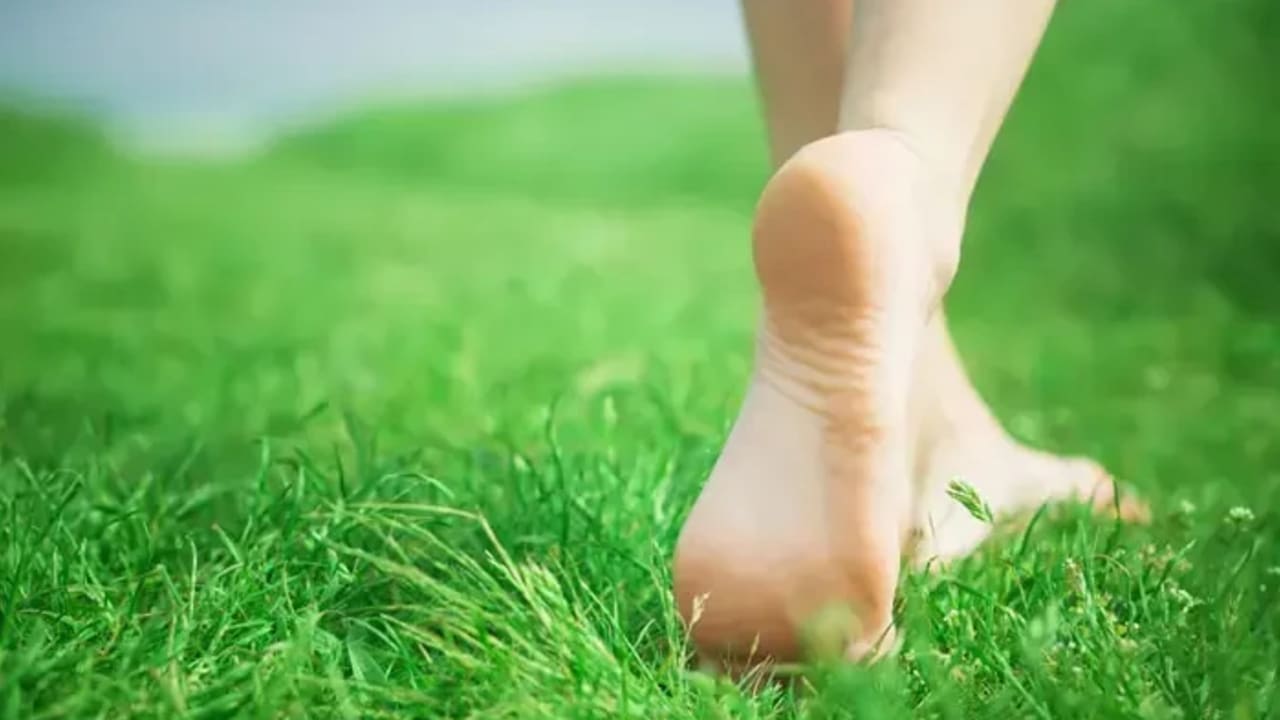ByMAOR MEONAR/WALLA!
The grounding trend has gone viral on TikTok and beyond, with sweeping promises of health improvement. Is there any proven reason to adopt this method?
In theory, the idea of grounding (or by its catchy Hebrew name—kirku'a) makes a lot of sense. While our ancestors were always in contact with the ground beneath their feet, in the modern world we are constantly surrounded by homes, sidewalks, roads, and even shoes, leading to a disconnection from this natural contact with the earth.
Because of this distance, the concept of “Grounding” or “Earthing” emerged, suggesting that detachment from the earth could lead to a series of issues—from chronic pain and orthopedic problems due to incorrect foot positioning to chronic stress and sleep disorders. But ironically, some recommend reconnecting with the earth through technology—and yes, as you might have guessed, there are many expensive products hidden behind this appealing story.
Shoes, carpets, mattresses, and even sheets with “grounding technology” are all over social media, with promises of improved sleep and health. So we checked what’s really behind all of this and whether there’s any research-based reason to buy them.
So How Is Grounding Supposed to Work?
Our bodies conduct electricity, which means they transmit electrical signals upon contact with the earth or artificial sources like electronic devices or objects.
Supporters of the method claim that grounding “reconnects the conductive human body to the subtle and natural electrical charge of the Earth's surface,” as cited in studies examining the phenomenon. They attribute various physiological and psychological benefits to the process, including treatment of orthopedic issues, reduction of stress and anxiety, improved sleep quality, better posture, and relief from chronic pain.
Grounding technologies come in different forms, such as mats placed under work desks, mattress toppers, and sheets—all designed to provide a “more natural” path for electrical charge to flow between the body and the earth. In practice, these technologies use the grounding pin in wall sockets to connect us to the earth via the building’s wiring—just as nature supposedly intended.
The Confusing Connection Between Grounding and Better Sleep
There is still not enough research on grounding to definitively determine whether it is truly beneficial for health, but there are some preliminary findings worth mentioning. For example, a 2025 Korean study recruited 60 participants, half of whom received a grounding mat and the rest a visually identical mat without the technology. The researchers used a “double-blind” protocol, so neither the participants nor the researchers knew who received the actual grounding mats.
All participants wore sleep tracking devices and were asked to sit or lie on the mat for six hours a day. The researchers found that after 31 days, the participants who received grounding mats slept longer on average than the control group.
However, in questionnaires that included information on sleep quality, daytime fatigue, and stress levels, both groups reported improvement across all measures, with no significant differences between them. And while participants in the grounding group showed lower levels of insomnia during the study, it appeared this difference already existed at the start. Therefore, it’s unclear whether grounding had any real impact on them—and of course, much larger studies are needed to draw firm conclusions.
Grounding as a Tool for Pain and Stress Reduction?
Grounding technology, as noted, is marketed with a range of health improvement claims, the most prominent being pain and inflammation reduction. In this context, a 2019 study found that participants who slept on a grounding mat after intense exercise felt less pain and showed lower levels of inflammation markers in their blood compared to a control group.
Dr. Dean Miller, senior lecturer at the Appleton Institute and CQ University in Australia, explained in an interview with The Conversation that “grounding after a workout may help people feel better and recover faster, but it's still unclear whether and how it affects the body in the long term or impacts physical training outcomes.”
In another study published in 2022, researchers from Taiwan examined the effectiveness of grounding mats in improving sleep among Alzheimer's patients. The findings indicated that spending 30 minutes on a grounding mat five times a week led to improved sleep quality. However, while previous studies suggested that using grounding technologies might enhance mood, the Korean study found no differences in anxiety or depression measures.
Bottom Line
What experts can say at this point is that the studies do not show grounding technology to have negative effects on health—so if you like these products or want to try them out, go for it.
But in the end, it’s important to remember that grounding products are not cheap, while simply lying on the grass or walking barefoot in nature is completely free. And although current evidence supporting health benefits of grounding products is limited, there’s no doubt that real time spent in nature can aid sleep, calm the body, and improve mood.















